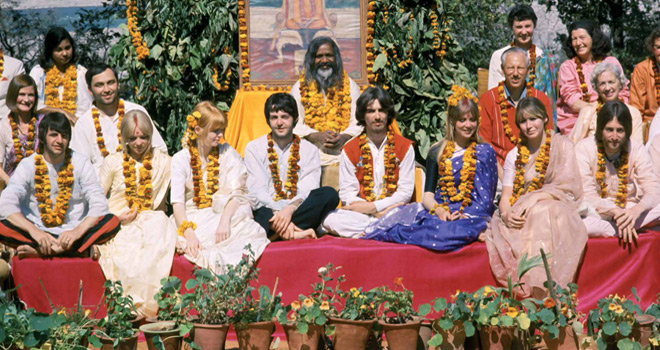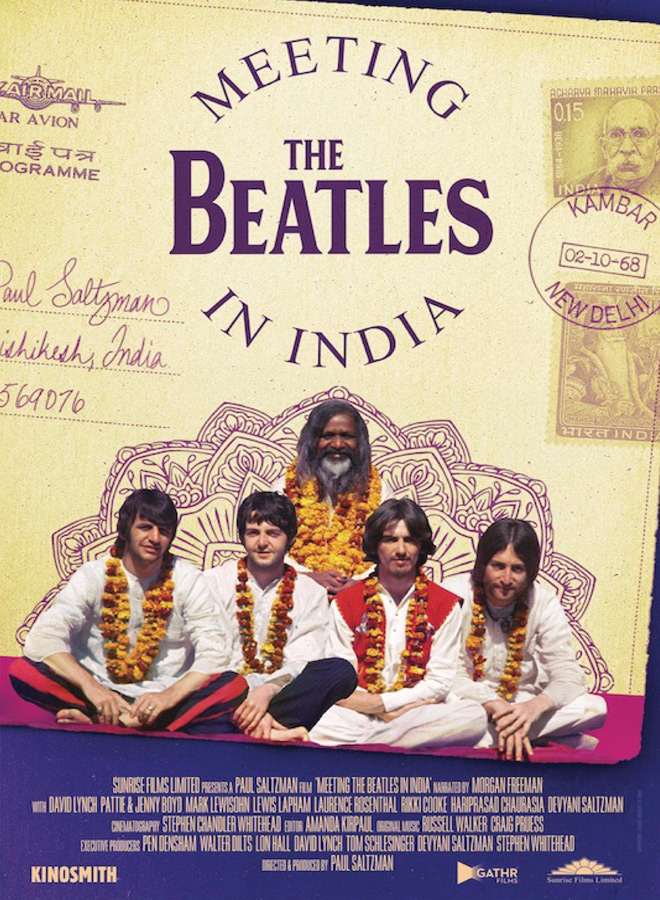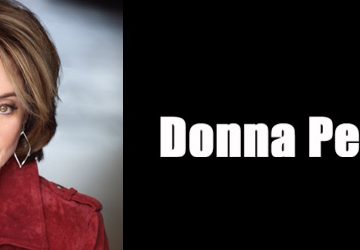
Now, over 50 years after that India trip, Saltzman shows his work to the world for the first time. Set for release on September 9, 2020 via a Virtual World Premiere through Gathr Studio’s main website, Meeting the Beatles in India features over 40 never before seen photos of the Beatles from that retreat. On top of that, Saltzman revisits the ashram itself, pointing out key sights, and discussing how the Beatles wrote their songs while in Rishikesh. He also talks to others who were there, like George Harrison’s first wife Pattie Boyd and her sister Jenny, and Richard ‘Rik’ A. Cooke III – the real life ‘Bungalow Bill’.
The documentary features narration by Morgan Freeman (Seven 1995, Invictus 2009). While David Lynch (Mulholland Drive 2001, Inland Empire 2006) serves as one of the film’s executive producers and talks about his own experiences with Transcendental Meditation on screen. The film is not just about newfound Beatles media, but about the spirituality involved in the journey too. So, how is it?
First off, Freeman’s narration. It is pretty much what one expects- solid, stable, and sounds like Freeman. But his vocal appearances are sparse, as Saltzman provides the bulk of the commentary. He comes off drier than Freeman, and he is not exactly bouncing off the walls. He comes off more warm-blooded on-camera than in post-production voice-over. That said, his commentary does blend well with the humming, serene soundtrack, where it has a mantra-like effect. Or a Canadian Bob Ross with an Indian backing track.
Production-wise, it is a talking head format with a few differences. Every so often the camera will cut to show interviewer and interviewee (or even the cameraman behind the previous cut) face-to-face, or from front to back angles for on-foot segments. Old habits must die hard, as this multi-cut approach cropped up in his 1970’s educational series Spread Your Wings. What that series did not have was illustrations. Some of Saltzman’s recollections, particularly with the Beatles, are shown through a series of stills. Viewers can tell who’s who and what is what, but they do look a bit scrappy. Like rough drafts for a comic.
Still, these little quirks certainly keep it intriguing. It is one thing to have Saltzman talk to Beatles historian Mark Lewisohn in London. Then it is another for him to take Lewisohn off to Mumbai and journey up to the Rishikesh ashram from there. Or the Lynch interview, which is more of a mutual discussion on meditation as Lynch asks Saltzman questions back as well. They can be quite fascinating too, particularly Cooke as he reflects on the contradiction between his then-interest in hunting and meditation. Oh, and on finding out John Lennon wrote a gag song about him.
So, Meeting the Beatles in India is a fascinating mix of recollections, Beatles history, and musings on spirituality. Beatles fans will obviously get more out of the film than practitioners of Transcendental Meditation alone, but the latter gives it a unique angle that few other documentaries tread upon. Perhaps it could have done with a bit more focus on the photos themselves, though they are dotted throughout the picture. As it is, it still provides food for thought, and is still worth a watch or two. Thus, for these reasons, Cryptic Rock gives this film 4 out of 5 stars.





